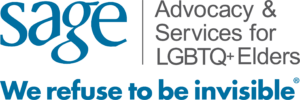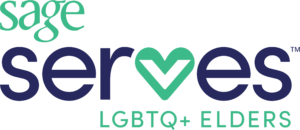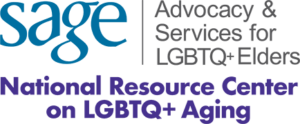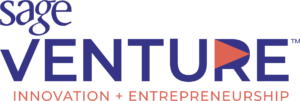
One of your organization’s top goals as a service provider for older adults is to treat all people equally. In theory, this sounds like a simple objective. But many intake experiences for constituents actively work against this aim. Intake forms and interviews are not often designed to gather demographic information from new clients, residents, patients, and community members in an inclusive way. They fail to isolate assumptions about groups of people, which means they’re not supporting true person-directed care.
That’s where SOGI training can help. All organizations in the healthcare space stand to benefit from strong LGBTQ training that educates leadership and staff on the right way to facilitate intake and everyday service delivery. But this work is especially important for older adults receiving services and care from these facility types:
- Home health providers
- Home care providers
- Skilled nursing facilities
- Assisted living communities
- Hospice and palliative care programs
- Long-term care communities
- Area agencies on aging
The intake process at these facilities is a crucial opportunity to get to know new community members and set the tone for the experience they will have with staff and their own peers.
Learn how to include SOGI in your intake conversations with acceptable language to take an intersectional approach to demographics.
What Is SOGI?
SOGI is defined as sexual orientation and gender identity. You may also see the term SOGIE, which refers to sexual orientation and gender identity and expression. Every individual has a unique SOGI that impacts their lived experiences. Collecting this information—in whatever form a person wishes to share with others—is important to delivering inclusive, intersectional healthcare services that take into consideration how these lived experiences shape personal history and identity and how they ultimately affect the way an individual successfully receives services and interacts with facility environments. Having a thorough understanding of each element of SOGI is vital to improving your organization’s SOGI practices.
- Sexual Orientation: Your identity in relation to your primary emotional or physical attraction to others
- Gender Identity: The gender you feel you are on the inside, which is separate from the sex you were assigned at birth
- Gender Expression: The unique ways in which you choose to embody or convey your sexual orientation and gender identity
Appropriate times to ask SOGI questions include during the standard intake process, after someone has been admitted to your community, in counseling meetings, or during healthcare intake sessions. Intake demographics often begin with questions about sex, asking if a person is either male or female. But they rarely include gender identity or make it clear that questions about sex are really asking about the sex others assigned to us at birth. They don’t often gather details about sexual orientation and gender expression, and typical options for relationship status rarely go beyond single, married, and divorced. Failing to recognize the wide spectrum of SOGI that impacts all of our lives is not in the best interests of clients, residents, and patients during intake, or their friends and family members who may facilitate the process.
Why Is SOGI Important?
Understanding SOGI is the first step in creating a more inclusive intake experience, but why is SOGIE important? For several reasons. Many people, in particular those of older generations, are afraid of the negative reactions or consequences that may come with outwardly identifying as members of the LGBTQ+ community. When healthcare organizations offer a safe, optional opportunity to share SOGI information, they signal that they recognize and affirm the intersectional identities of all individuals, including LGBTQ+ older adults. And the impact of that for a business goes well beyond an individual’s time in the intake phase.
Top Benefits of SOGI Data Collection
- Collecting SOGI data can help meet organization requirements and measure the level of care access and quality that your team provides to populations
- Gathering SOGI demographics can be critical to patient care plans, organization decision-making, and general service improvement initiatives
- SOGI data can offer a more holistic view of clients to build rapport, avoid operating on assumptions, and determine what support they need
- Showing you understand the importance of SOGI as part of a person’s history and sense of identity sends a welcoming message to new community members
- Inclusive intake experiences can help older adults feel accepted and comfortable forming positive, healthy relationships with new living spaces, staff, and peers
- Recognizing SOGI can help employees feel safe deepening workplace relationships and delivering productive, high-quality services
- Strong inclusive practices can impact your business’s identity, showing prospective employees that you are a welcoming workplace for top talent
- Improving inclusivity can reduce harassment and gossip in your community and among employees, making it clear certain behaviors are not tolerated
How Can SOGI Training Help?
Investing in LGBTQ+ competency through SOGI training is the best way to enhance service delivery and community outcomes and support long-term business growth. With your staff and agency more LQBTQ+ competent and your internal processes more inclusive, you can communicate with clients, residents, patients, and their friends and families with greater depth and compassion. And what’s great for all community members is great for business.
SOGI training, when supplied by an experienced provider, is designed to educate both leadership and staff on sexual orientation and gender identity and expression, convey the importance of SOGI data collection, and offer instruction on the intelligent application of inclusive SOGI practices. For some organizations, it’s best to obtain training optimized for working with LGBTQ+ older adults. This is SAGECare’s specialty, as a leading LGBTQ+ aging cultural competency provider with decades of knowledge on improving the lives of LGBTQ+ older adults.
A comprehensive training program can be conducted virtually or in person and may cover areas of interest relevant to your specific space in the industry or updates on trending topics in the LGBTQ+ community. With any SOGI training, it’s important to communicate to employees that gathering demographic information is a skill they already possess. Your team is simply making a new, concentrated effort through professional education to improve the way you ask questions so your organization as a whole can become more inclusive of LGBTQ+ older adults and other members of your diverse clientele.
If your company is looking to make headway on a SOGI training initiative, get in touch with the experts at SAGECare to learn more about our LGBTQ+ aging cultural competency training, credentialing, and consulting services.
In the meantime, you can find more helpful guidance in our handy tip sheet, Inclusive Intake: Asking Older Adults SOGI Questions. It’s a great resource to share with colleagues that offers a quick overview of SOGI and the benefits of intersectional data collection, plus detailed examples of how to write SOGI questions in your intake forms. Nervous about asking these questions? Download the tip sheet for a confidence boost and start optimizing your intake strategy today!





